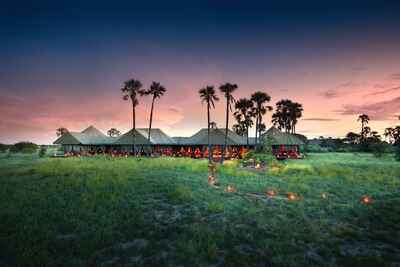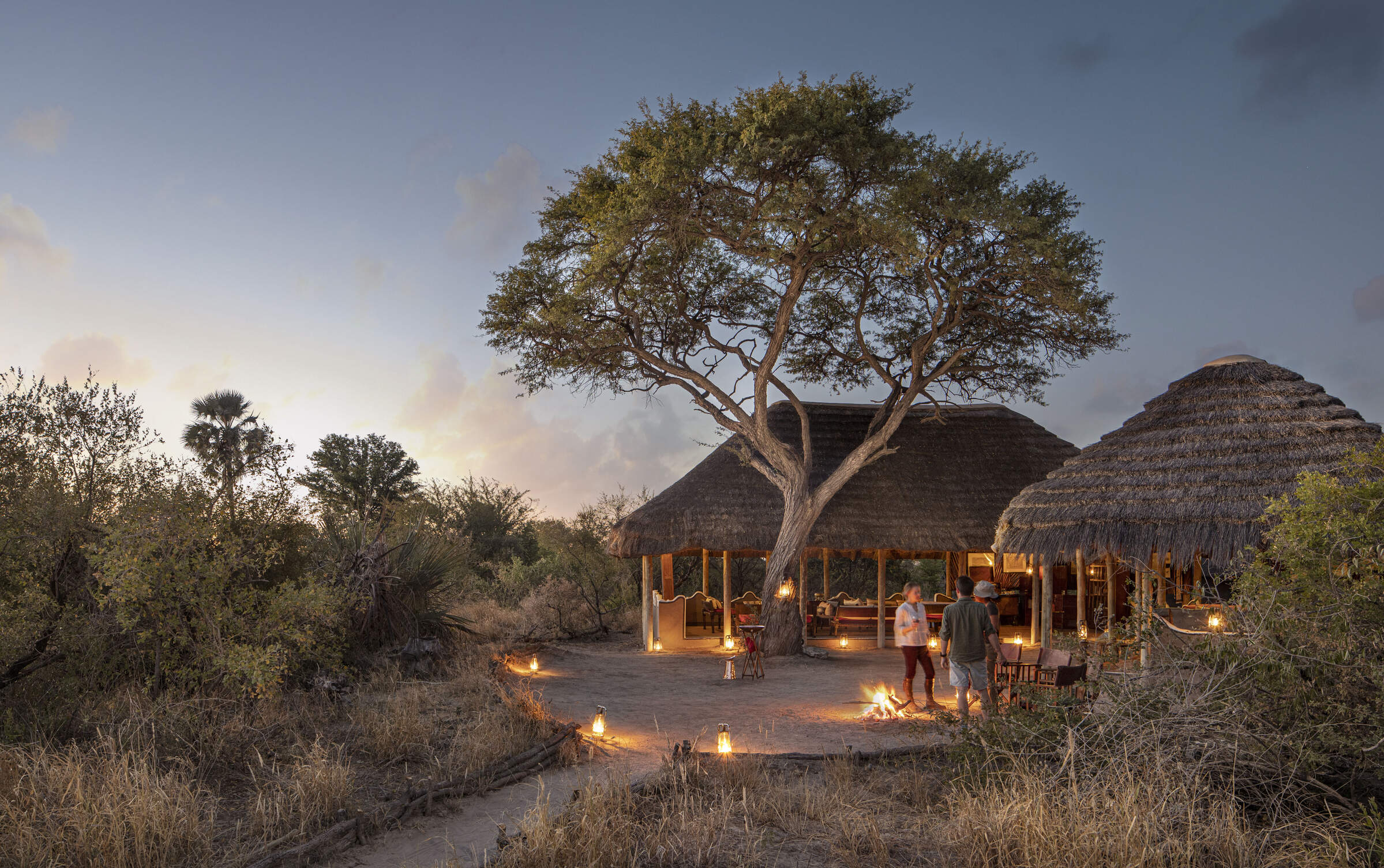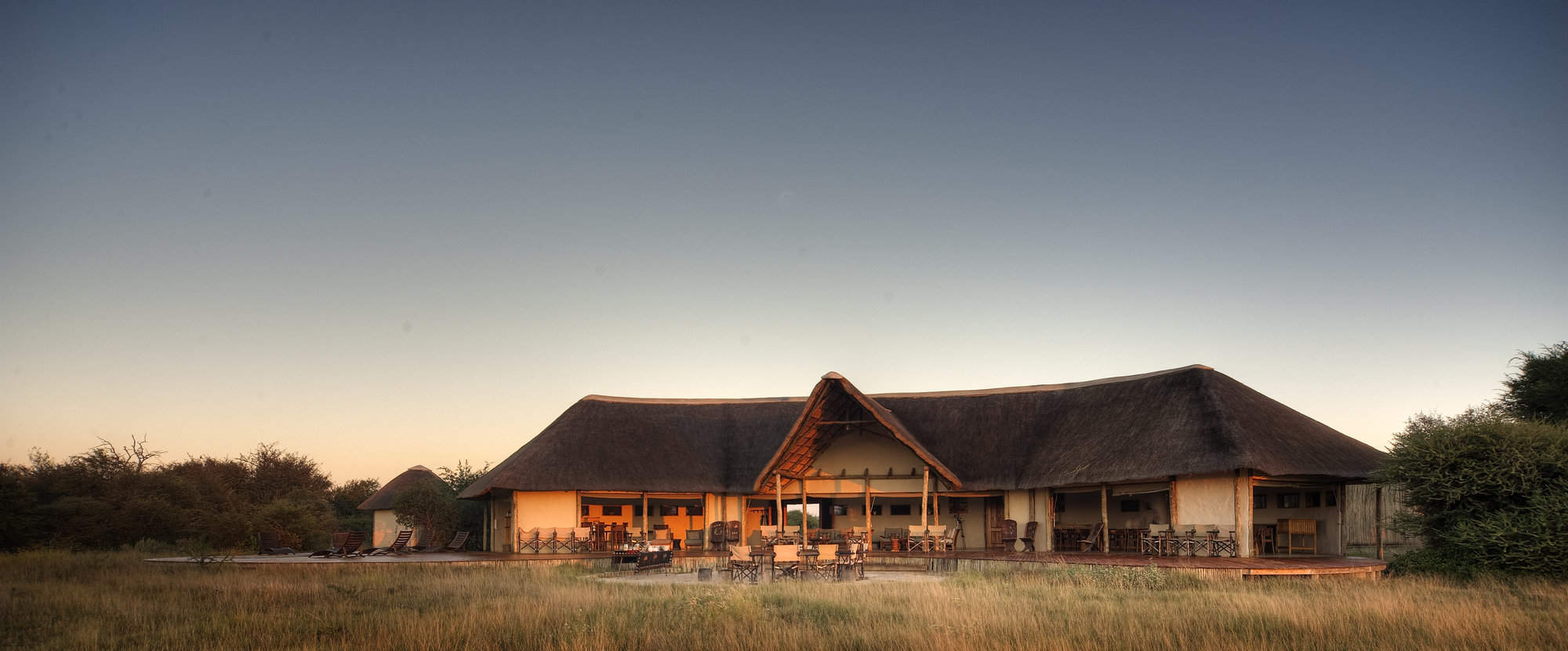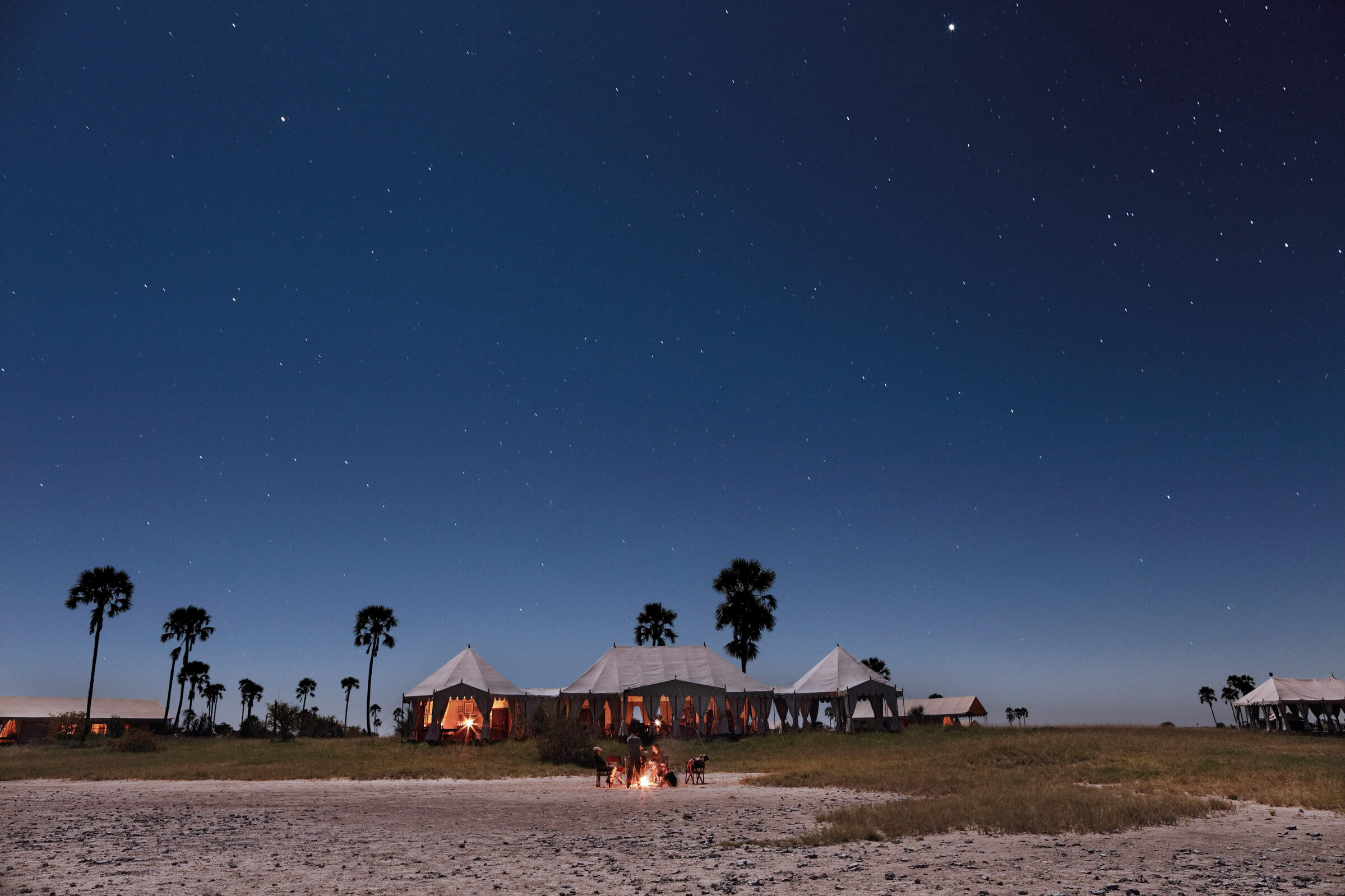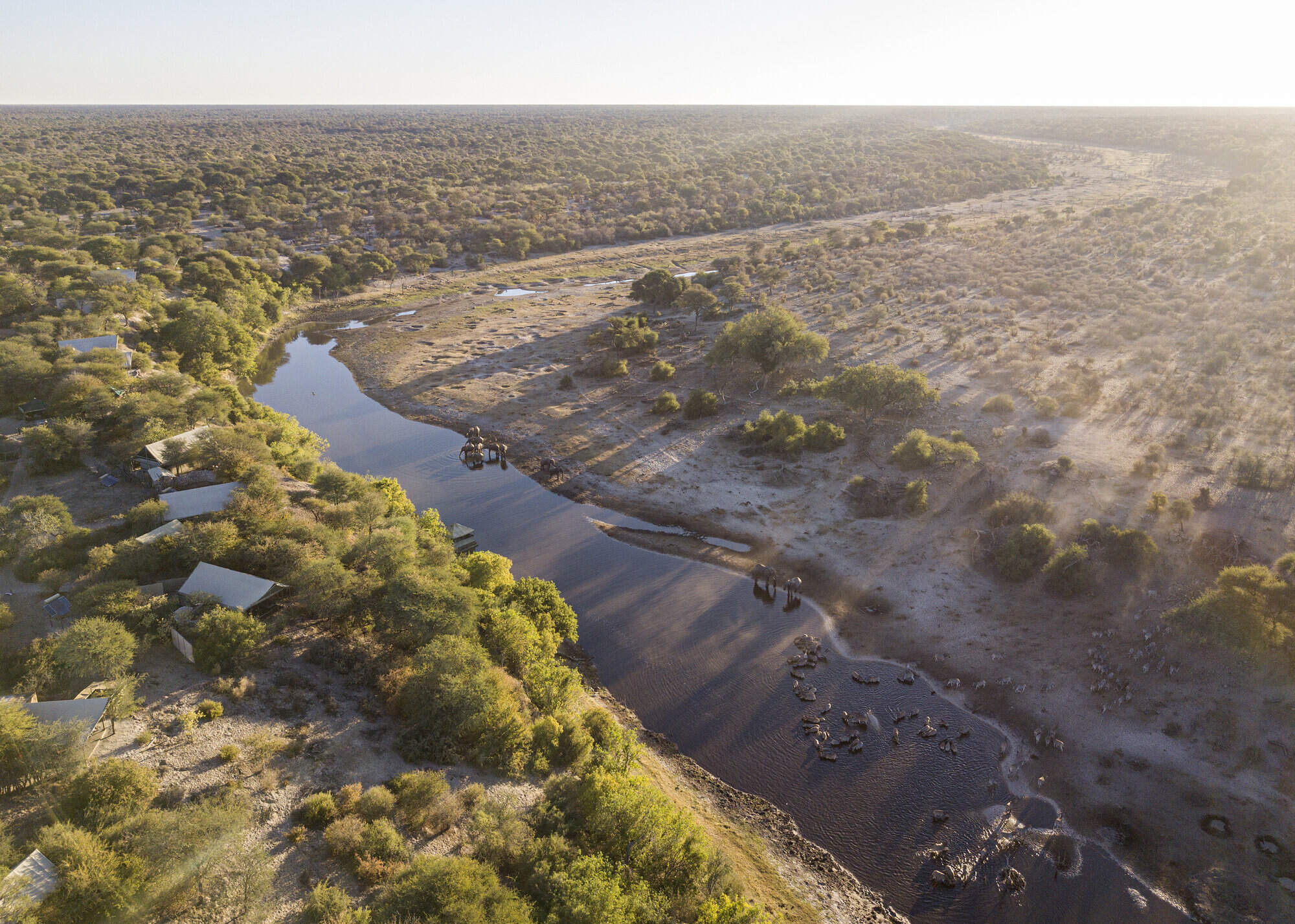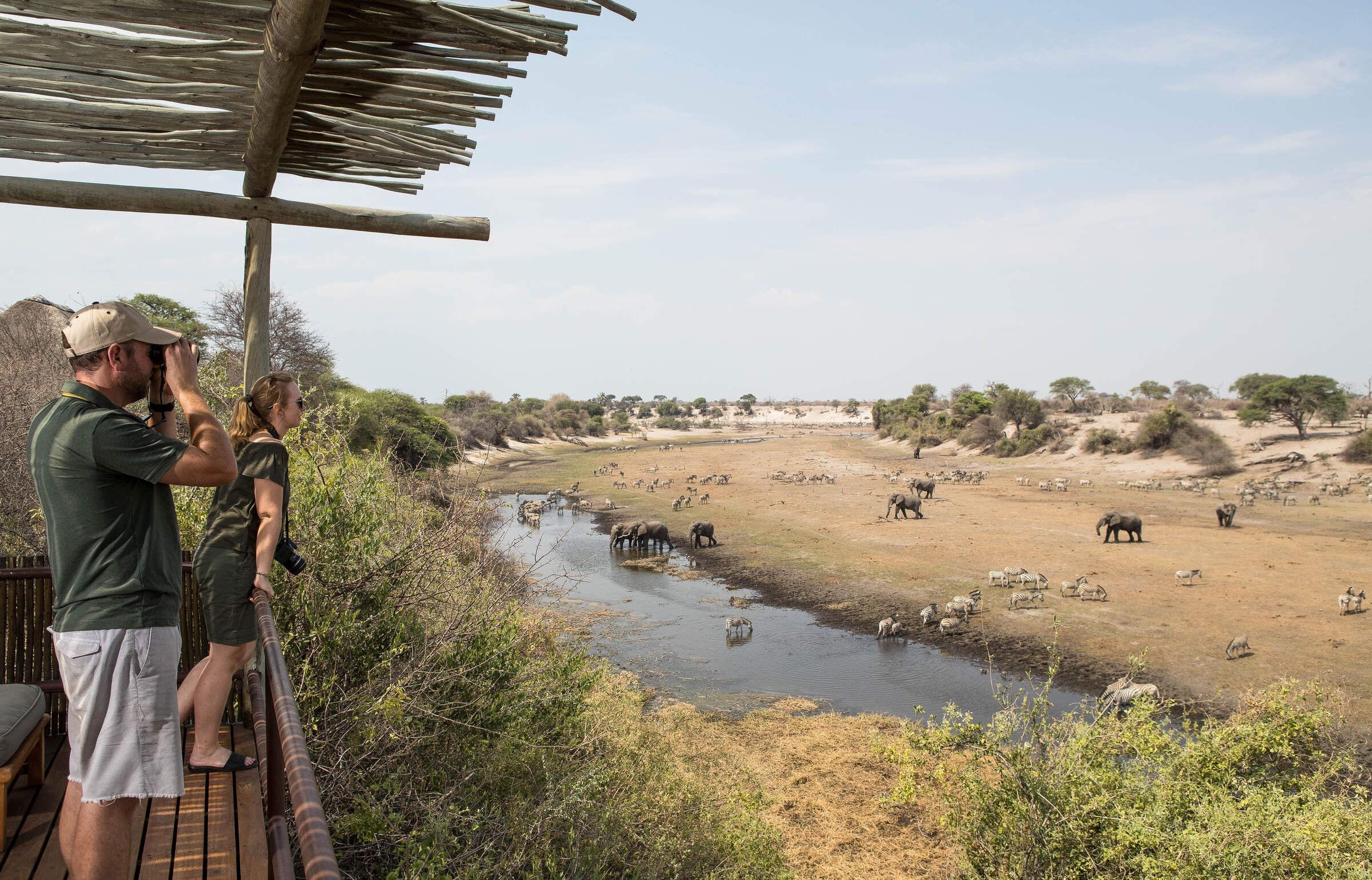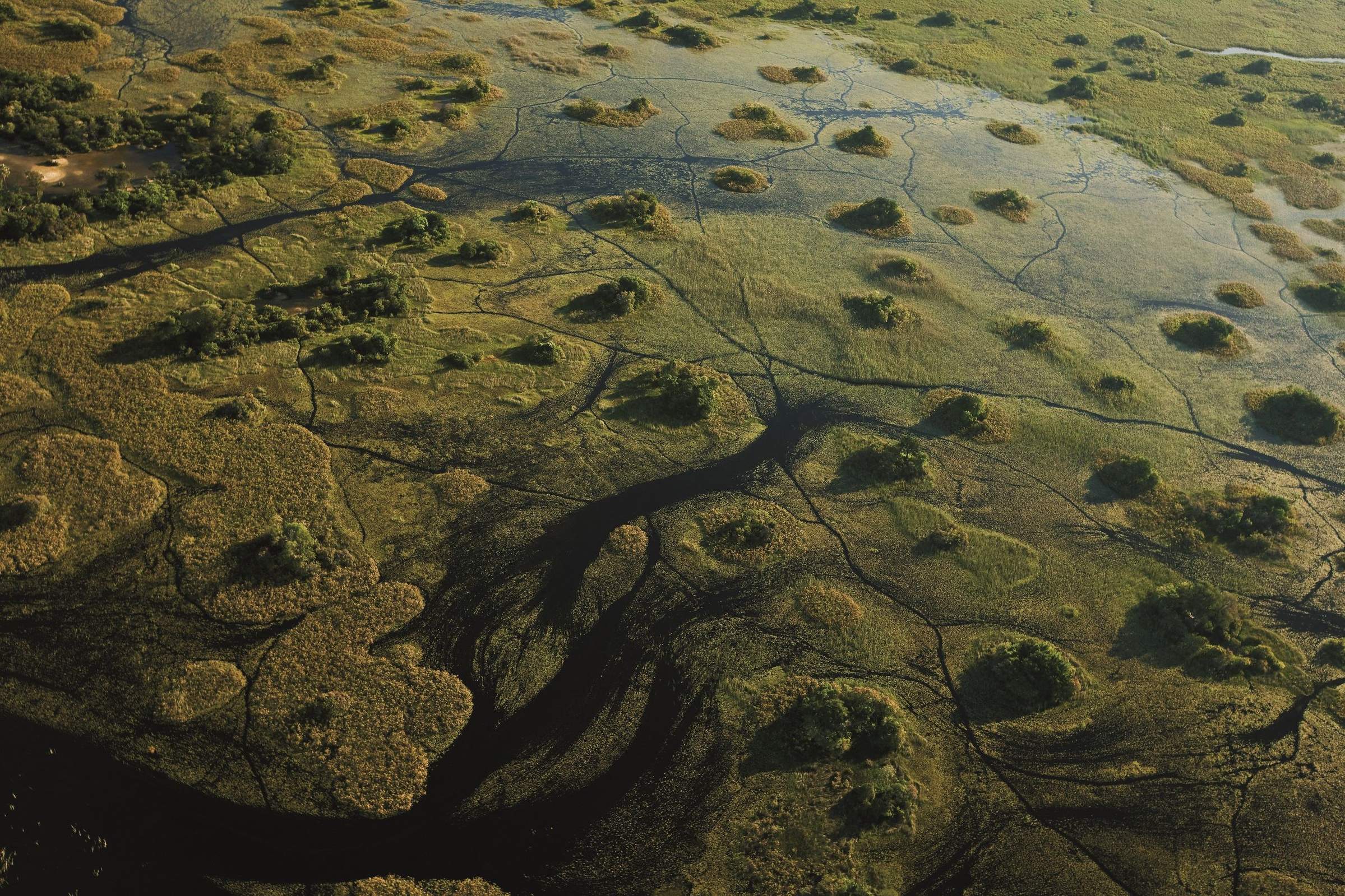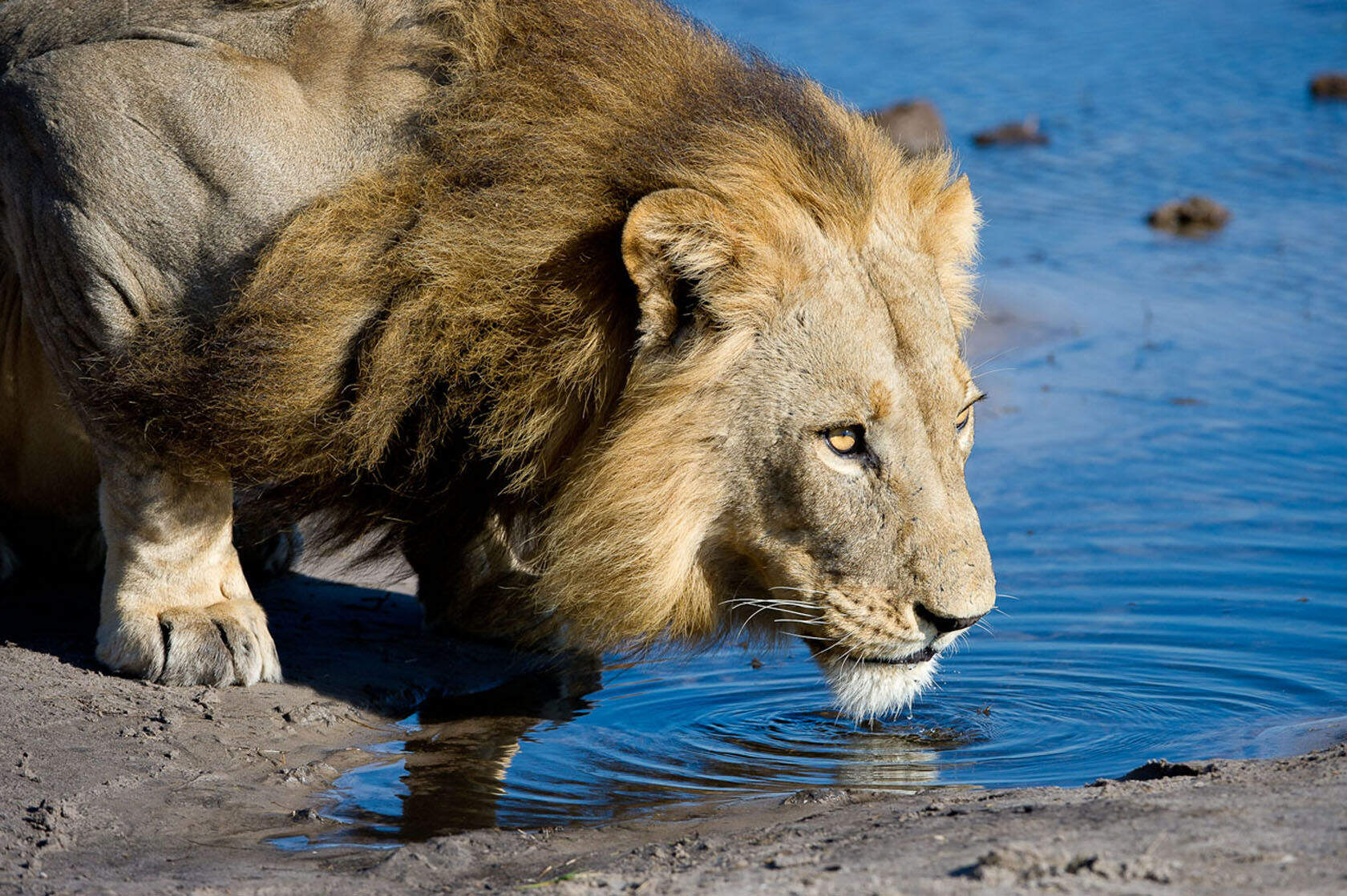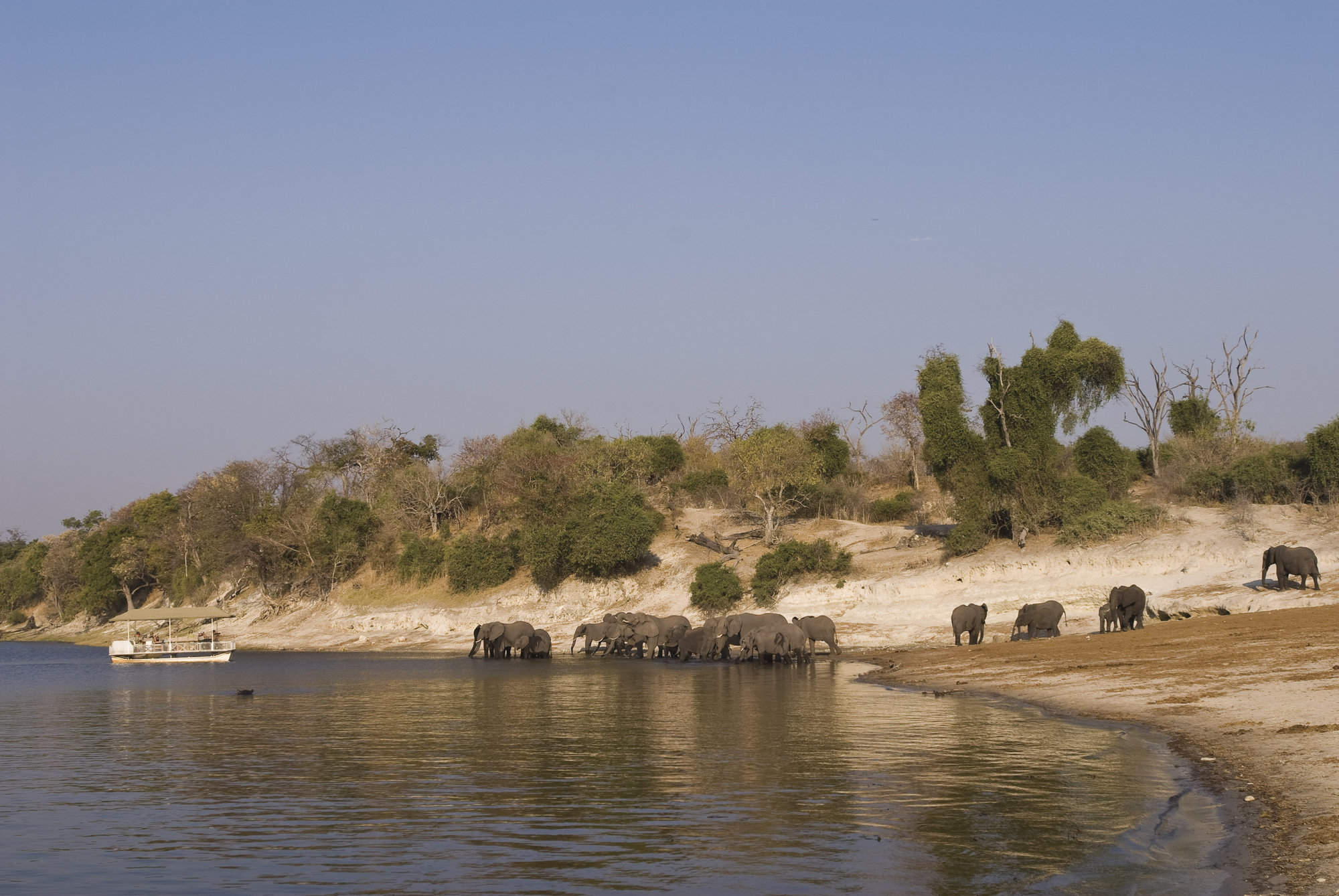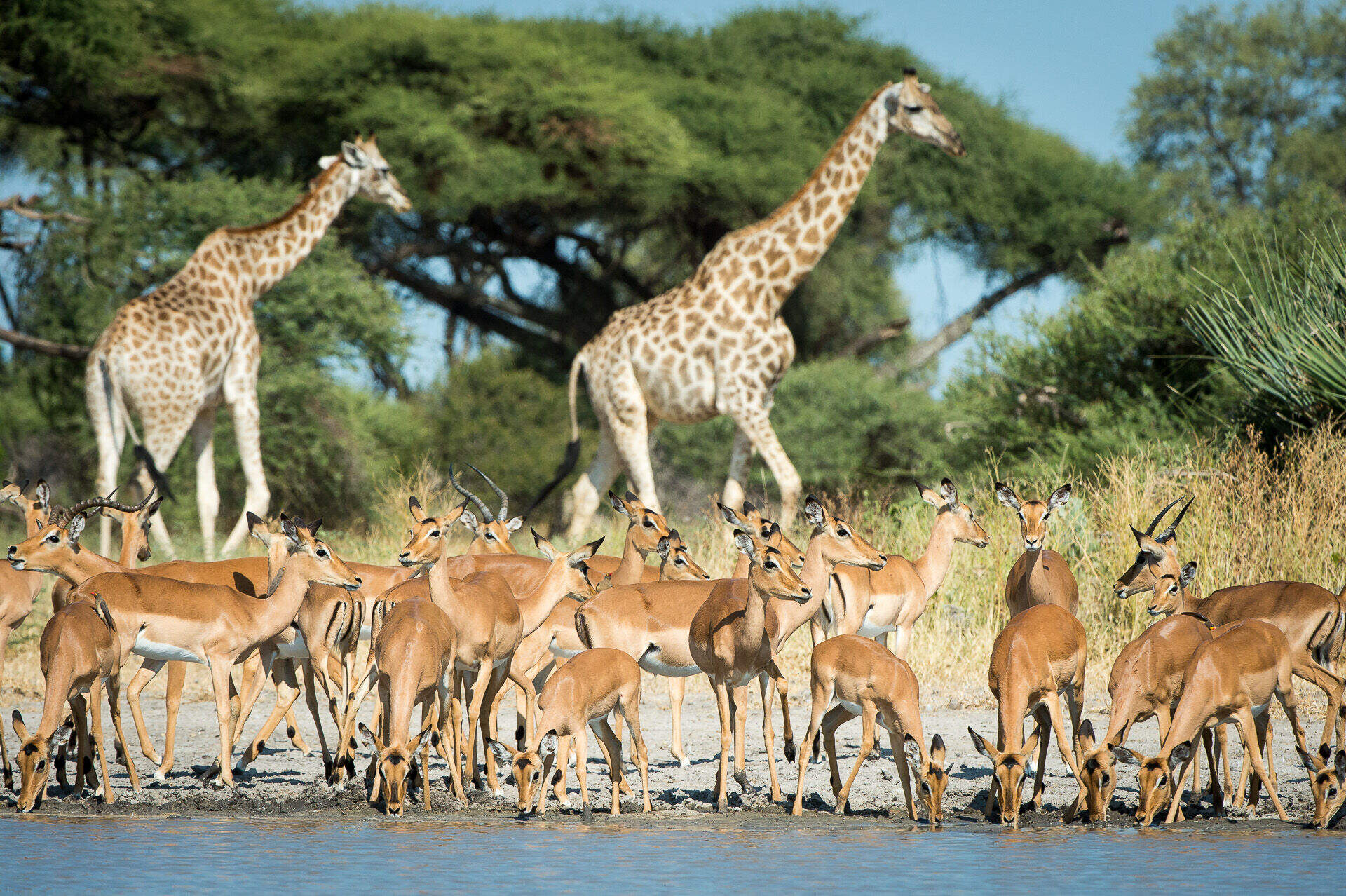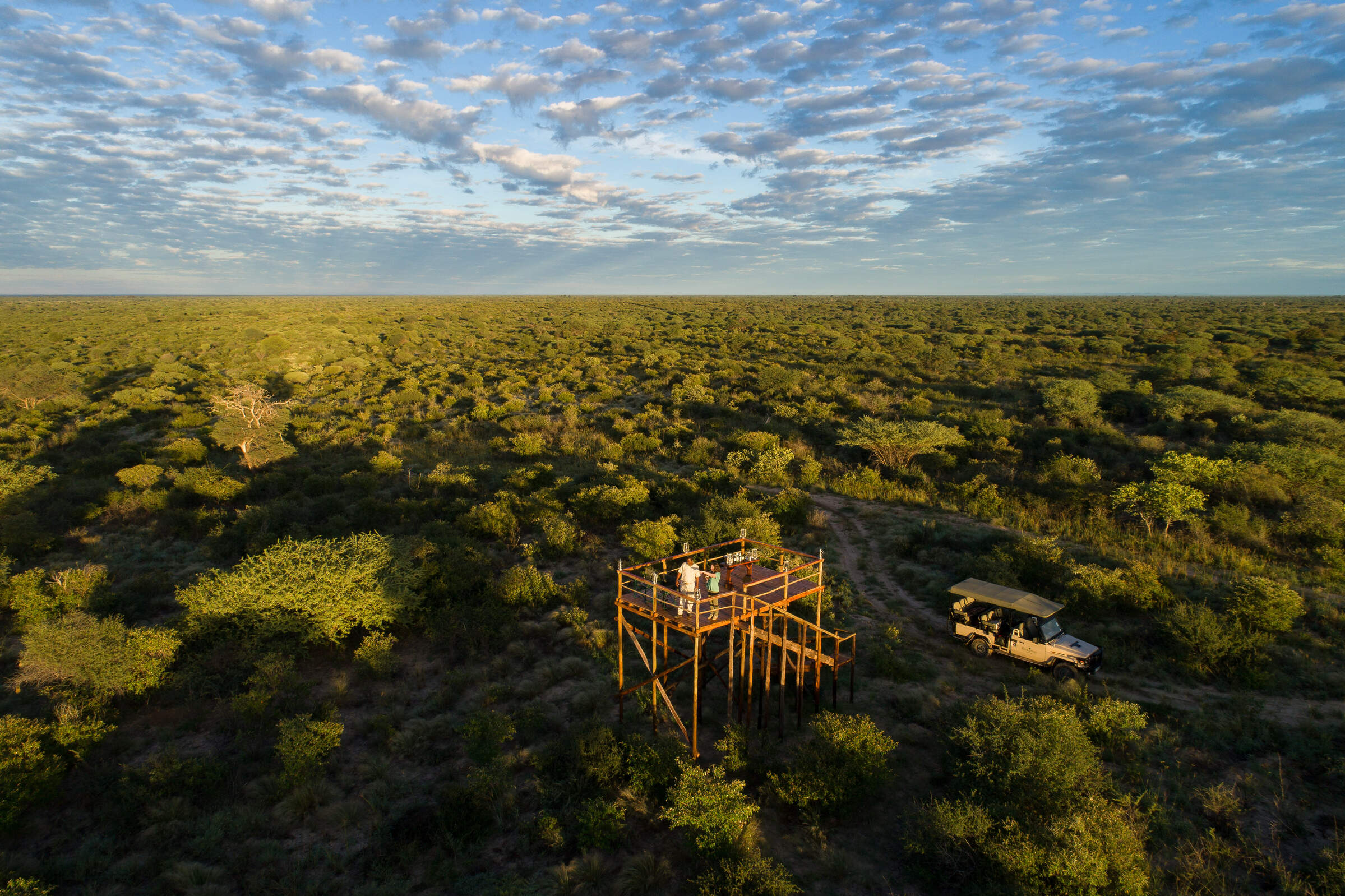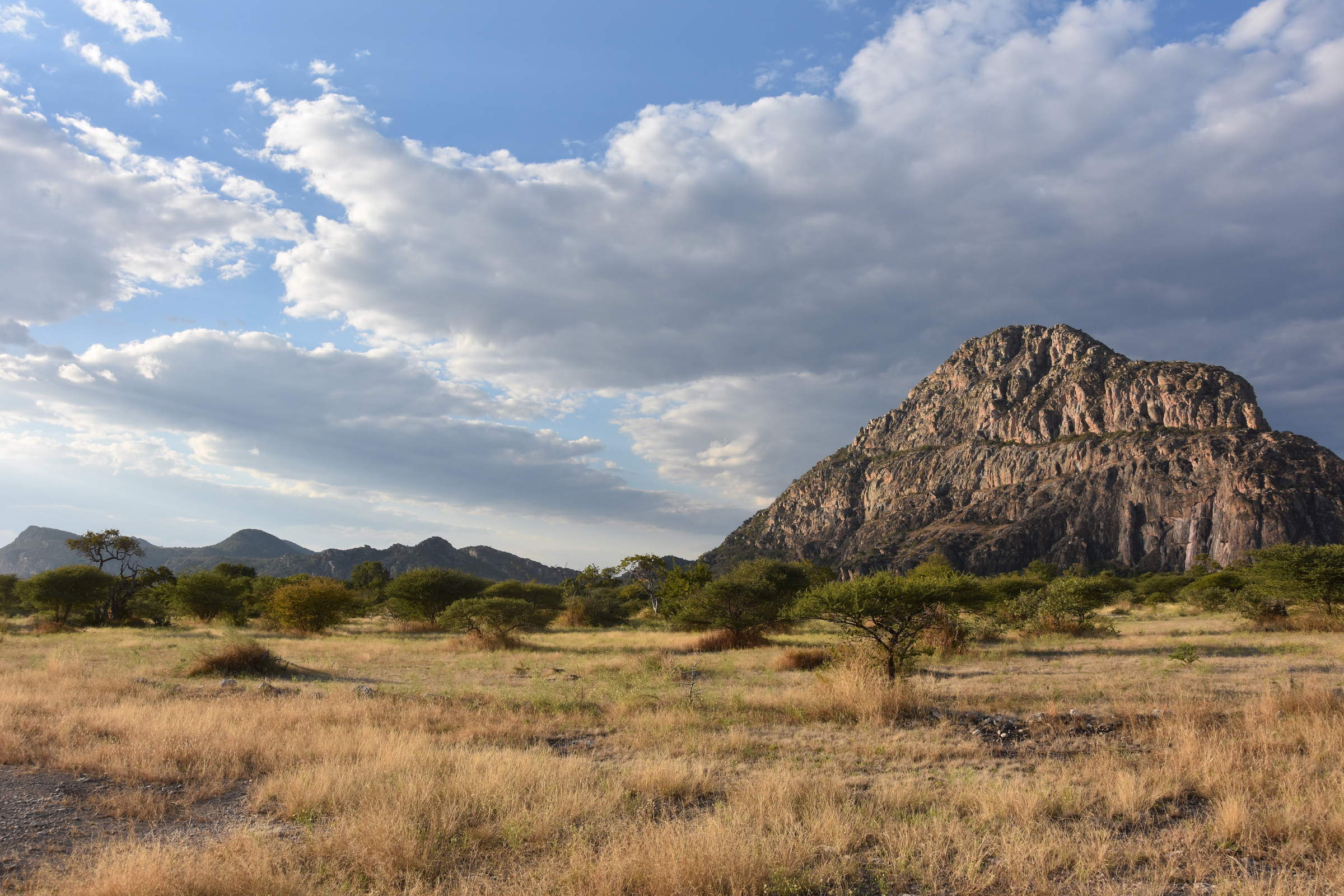Jack's Camp: Our full report
Beneath a grove of mokolwane palm trees, Jack's Camp has extensive views across Botswana's immense Makgadikgadi Pans.
Although dotted with patches of grassy savannah and photogenic palm islands, the pans are arid for much of the year, and can be relatively devoid of wildlife, but be prepared for unusual surprises. Jack's is one of Africa's most upmarket camps and takes pride in its motto: “Give them what they never knew they wanted.”The Makgadikgadi Pans is dry for much of the year, and the larger animals are often scarce. During the green season (late December–April), however, the landscape transforms as the pans fill with rain, attracting clouds of flamingo and other migratory birds, while migrating herds of zebra and wildebeest wheel around the grasslands, followed closely by opportunistic predators.
Even in the dry winter months, the addition of pumped waterholes attracts a good number of zebra and wildebeest (and accompanying lions etc), making game viewing a more year-round experience. This is in addition to the desert-adapted wildlife that is here year-round, such as ostrich, springbok, steenbok and black-backed jackal, while by night you might come across brown hyena, aardwolf, porcupine, bat-eared fox, honey badger and scrub hare. Kalahari lion, cheetah and leopard also roam this area, and though they are elusive, they are spotted occasionally, especially lion.
Jack's Camp itself has been beautifully constructed in a very classical safari style, providing an inviting and quite romantic oasis in this harsh environment. The early settler décor throughout the camp features a mix of old mahogany furniture, Persian rugs, Moroccan and Ethiopian artefacts and natural objects such as ostrich eggs and feathers.
Large custom-made marquee tents built on low, raised wooden platforms house the main areas. The dining and lounge tent is adorned with a variety of photos, maps, diagrams and natural history objects, and houses an extensive library: an impressive collection that is registered as a national museum. (As such, displays in the main area include skulls and taxidermy specimens, which may not be to everyone’s taste, as well as human artefacts such as stone tools found in the area.) A large table occupies the dining room, with comfy seating areas filling the remaining spaces.
Steps lead down to a firepit where guests can enjoy social evening drinks under the stars. A short stroll away there's another enormous open-sided tent which shelters the swimming pool, built into a wooden platform and surrounded by loungers. In the other direction, a circular Bedouin tent adorned with low-slung chairs and scatter cushions is used for informal afternoon tea.
Behind the main area is a small tent housing a curios shop selling souvenirs and mementos along with field guides, sunscreen and more.
Pathways lead to the nine walk-in tents at Jack's – the furthest about five minutes' walk from the main area. Each of these large tents – two doubles and seven twins – is raised on a wooden platform with a private wooden deck offering expansive views. Constructed of khaki-green canvas with a patterned lining, the tent opens through a zipped door into the bedroom, where you'll find an oversized king or twin queen four-poster beds. There's a seating area, too, along with a desk, chest of drawers, a few random natural history books and an open canvas shelving and hanging space.
A canvas-and-cloth partition separates the bedroom from the en-suite bathroom, where the washstand, with a copper basin and inlaid mirror, is made from an old writing desk, and a quirky flush toilet is fashioned into a wooden throne. Indoor and outside showers (the latter with a wooden screen for privacy) are complemented by plenty of toiletries.
A standing fan helps to keep the tent cool, and hot-water bottles warm the beds on cold winter nights (May–July). We understand that the camp is also in the process of installing woodburning stoves in the tents for these cooler months.
Jack’s Villa was under construction during our last visit, in December 2023. Once complete this will offer travellers an even more private and exclusive experience, yet still in the style of Jack’s Camp. We are waiting to learn more about this new addition.
Guided activities from Jack's Camp focus on the unusual aspects of this area. The guides are well-versed, and sometimes real experts, in aspects of this environment and aim to give you an understanding of its fascinating geology, archaeology and anthropology, as well as a chance to observe its scarce wildlife. You'll be travelling in open vehicles with up to six guests in three rows of three seats, so everyone is guaranteed a “window” seat.
Do note that the activities and therefore the range of experiences at Jack’s Camp vary through the year. Speak to us if you would like to know more.
When we last stayed at Jack's, in October 2017, we saw lions with a fresh kill, and had two separate encounters with brown hyena at close quarters. On our night drives we were also lucky enough to see bat-eared foxes, masses of spring hare, a brown hyena with a 1½-month-old cub and both aardwolf and an aardvark – the latter a very exciting first sighting for this member of our team!
- Although we didn’t stay at Jack's on our last visit in December 2023, a real highlight of our time in the area was spending time with one of the resident families of meerkats. These have been semi-habituated and, while they are wild animals, they more or less ignore visitors. Following the meerkats as they forage across the Kalahari for grubs, frogs and scorpions is a fascinating experience; they're exceptionally cute, very inquisitive and most will allow you to follow or sit with them at very close proximity.
- Nature drives in and around the Makgadikgadi Pans National Park are offered, but since the collapse of Chapman’s baobab, and due to the relatively restrictive park rules, most activities take place on the private reserve. In the green season, the zebra migration (the second largest in Africa) is a major feature of drives here.
- Spotlit night drives are enjoyed on the return to camp in the evenings, and there are also night drives after supper, particularly in the dry season (June–November), when insects numbers are low.
- The “Bushman experience” at Jack’s is an informative nature walk led by a group of Zu’/hoasi Bushmen. Concentrating on the plants and smaller animals, they provide an interesting glimpse into a dying culture. This activity is sensitively run, and we believe it is one of the best of the growing number of similar activities we have taken part in during our visits to Botswana.
- Quadbike excursions onto the 6,500km² Ntwetwe Pan are available during the dry season (May to October). Because of the fragility of the pans, quadbiking is possible only during this period, sticking strictly to set tracks. (NB: It's essential that you read the quadbike warning in the Health & Safety section below for our comments on bike helmets and insurance on this activity.)
- Horseriding is also available here at additional cost, for both beginners and experienced riders. You can choose between rides of a few hours or – for experienced riders only – a multi-day trip of up to five nights.
- A helicopter is based at the camp with space for up to three passengers at a time. This can be used for transfers (doors on) or scenic helicopter flights (doors off). Scenic flights can range from 15 minutes to much longer trips including visits to Kubu Island, Nata Bird Sanctuary and beyond, often including lunch or a champagne stop. However, please note that any helicopter flights are at an additional, substantial charge.
Our view
Jack's is a high-quality camp offering a unique experience in a captivating and unusual landscape. Do expect some luxury, romance and remoteness; don't expect lots of big game. The close meerkat encounters, the archaeology (yes, really!) and the odd surprise were the highlights for us. Staying here both contrasts and complements time in the Okavango, rewarding those that take the time to visit whatever the time of year. That said, Jack's is expensive, as are the transfer flights to reach it, so many question its value. Given its unique qualities, we find that an impossible question to answer.
Geographics
- Location
- Kalahari's Salt Pans, Botswana
- Ideal length of stay
- We'd recommend a three-night stay; two nights really is too short, and four would probably be too long, unless you're planning to factor in time on whole-day expeditions out of camp. We’d usually recommend combining Jack’s Camp with other locations in more wildlife-rich areas of Botswana, for example, its sister properties Duke’s Camp or Tuludi in the Okavango.
- Directions
- Jack's Camp is a 50-minute flight by light aircraft from Maun, followed by a 4WD transfer to camp of roughly 15 minutes.
- Accessible by
- Fly-and-Transfer
Food & drink
- Usual board basis
- Full Board & Activities
- Food quality
- Although we didn’t stay at Jack’s Camp in 2023, in the past we've been very impressed with the quality, variety and presentation of food here, especially given its location. With advance notice, dietary requirements and private dinners can be catered for.
On our most recent stay, in October 2017, we began each day with a breakfast buffet of cereals, yoghurt and fruit salad; tea and coffee, plus bacon and eggs cooked to order, or eggs benedict, along with sautéed spinach served with red and yellow peppers.
For lunch we were served delicious Moroccan kebabs with lentils, accompanied by home-made bread. On our second day, we enjoyed simple, but tasty sandwiches of roast beef, turkey, or cucumber.
Afternoon tea is a selection of savoury and sweet treats. Across two teas we were offered corn-and-goats’-cheese beignets, mini scones, mini cheese quiches, chocolate brownies, vanilla cupcakes and home-made biscuits.
Nibbles before dinner comprised cheese triangles with dipping sauce on one evening, and vegetable samosas with a sweet chilli sauce the next.
For dinner our first night we enjoyed carrot, orange, and ginger soup, followed by chicken curry with rice, potatoes, chutney and cucumber; and rounded off by lemon posset with shortbread. On the second evening we tucked into pea and ham soup to start; lamb shank with wilted spinach and potatoes for the main course; and sticky date pudding for dessert. - Dining style
- Group Meals
- Dining locations
- Indoor Dining
- Further dining info, including room service
- Private dining can be arranged on request.
- Drinks included
- There is a well-stocked bar from which all the drinks – bottled water, soft drinks, local beers, spirits and a selection of (generally) South African wines – are included in the rates. Special or exotic drinks can be ordered in with advance notice, at additional cost.
Special interests
- Riding holidays
- The grasslands and vast pans of the Makgadikgadi are a stunning place to enjoy horseriding in Botswana. Trips from Jack’s Camp last from a few hours to up to five nights and are suitable for a range of riding experience and ability.
- See ideas for Riding holidays in Botswana
- Cultural experiences
- Jack's Camp offers an insightful and authentic walk with Bushmen. Going out with Bushmen guides, you'll learn about the flora and fauna integral to their lifestyle, and hear about their culture. We consider that this is one of the best such walks on offer.
- See ideas for Cultural experiences in Botswana
- Wildlife safaris
- Although wildlife densities at Jack's Camp are generally low, visitors can get exceptionally close to habituated meerkats – which for many is one of the best safari experiences in Botswana. This, along with the zebra and wildebeest migration and glimpses of black-maned lion, brown hyena and other desert species, makes the wildlife here pretty special.
- See ideas for Wildlife safaris in Botswana
Children
- Attitude towards children
- In principle, children of all ages are welcome at Jack's Camp. However, families with children aged under eight are required to book a private guide and vehicle at substantial additional cost. There is no family tent at Jack's Camp, so parents with younger children must share a tent with their childen. That said, we understand that with two queen-size beds it is possible to get a family of up to four with small children in one tent.
- Property’s age restrictions
- None
- Special activities & services
- None
- Equipment
- Camp staff are happy to provide childminding services on request, though they are not qualified in childcare. Activities that are popular with children, such as visiting the meerkats, can be repeated on request. There is a kids' menu available and meals can be served earlier if required.
- Generally recommended for children
- We recommend Jack's Camp for families with children aged eight and over. Families with younger children may prefer to consider Camp Kalahari, where there is no requirement to book private activities at additional cost.
- Notes
- Lion, elephant, leopard and other potentially dangerous animals can and do sometimes pass through camp, despite an electric fence designed to deter them. As such, children should always be closely supervised by their parents.
Our travellers’ wildlife sightings from Jack's Camp
Since mid-2018, many of our travellers who stayed at Jack's Camp have kindly recorded their wildlife sightings and shared them with us. The results are below. Click an animal to see more, and here to see more on our methodology.

100% success

83% success

83% success

50% success

33% success

33% success

33% success

17% success

17% success

0% success

0% success

0% success

0% success

0% success
Communications
- Power supply notes
- There is a back-up generator in case of cloudy days or other power interruptions.
Universal charging sockets are available in the tents and the main area and should allow travellers to charge most electrical items. - Communications
- There is WiFi for guests to use here but it is limited to the vicinity of the curio shop.
- TV & radio
- None
- Water supply
- Borehole
- Water supply notes
- There is hot and cold running water in each tent, as well as a flush toilet.
Health & safety
- Malarial protection recommended
- Yes
- Medical care
- Both camp managers and guides are first-aid trained and guides carry field kits in their vehicles. A comprehensive trauma first-aid kit is kept at the camp. The nearest doctors are a short flight away in Maun or Francistown. In an emergency, guests would be flown to Johannesburg, but please note that it is only possible to fly out of camp during daylight hours as the bush airstrips do not have any lighting at night.
Quadbike warning: with an abundance of caution, we feel that it's important to let prospective visitors know that although safety helmets are provided for the quadbike activities at Jack's Camp, there is scant mention of them by staff. They are left hanging up on a post at the side with the guides just demonstrating how to use the khikoi as a head wrap. We would very much recommend that you ask to use one of the helmets for your personal safety.
We understand that the camps have operated quadbikes regularly here since 1992, and that at time of writing there has never been a serious accident. The camp's team comments that they regard this activity to be safe even without helmets, especially as they generally keep to specific tracks and don't speed; and that the area is largely flat and free of other traffic. We're not aware of any of our travellers having any problems over the years prior to the helmets being introduced in 2016, and all of our team members who have visited have enjoyed quadbiking activities without any problems or concerns.
If you are concerned about the safety aspects of this activity per se, please tell us very clearly and specifically in writing, before you travel, and request that we confirm to you in writing that we have arranged for you to be driven across the pans in a vehicle instead of using a quadbike. If you leave this decision until you're at camp, and then elect not to do the quadbike activity, alternative arrangements may not be possible, although, of course, you could always relax around the camp and swimming pool instead. (Sadly, refunds aren't possible if you choose to miss activities like this at a camp.)
As with any activity, please check the details of your travel insurance to ensure that you are fully covered in the case of quadbiking accident. Be aware that some insurance will provide cover for bikes up to a certain engine power, but not beyond – so you need to check such clauses particularly carefully. - Dangerous animals
- High Risk
- Security measures
- In case of potentially dangerous wildlife passing through this unfenced lodge, guests are escorted to their tents after dark. Guides and managers are accommodated close by and an airhorn is provided in the tents for attracting attention in the event of an emergency at night.
- Fire safety
- There are fire extinguishers in each tent, in the common areas and in each safari vehicle. Fire hoses are also strategically placed around the camp.
Activities
4WD Safari
Birdwatching
Cultural excursion
Fly-camping
Guided walking safari
Night drive
Private activities
Quad-biking
Sleeping under the stars
Extras
- Disabled access
- On Request
- Laundry facilities
- A laundry service is included – excluding underwear, for which washing powder is provided in each tent.
- Money
- The camp does not offer any money-exchange facilities. There is a safe in the camp office that guests are welcome to use, but there are no safes in the tents.
- Accepted payment on location
- Mastercard and Visa credit cards are accepted; Amex and Diners are not. Cash payments may be made in GB pounds, US dollars, euros, South African rand and Botswana pula.
Other lodges in Kalahari's Salt Pans
Alternative places to stay in this same area.
